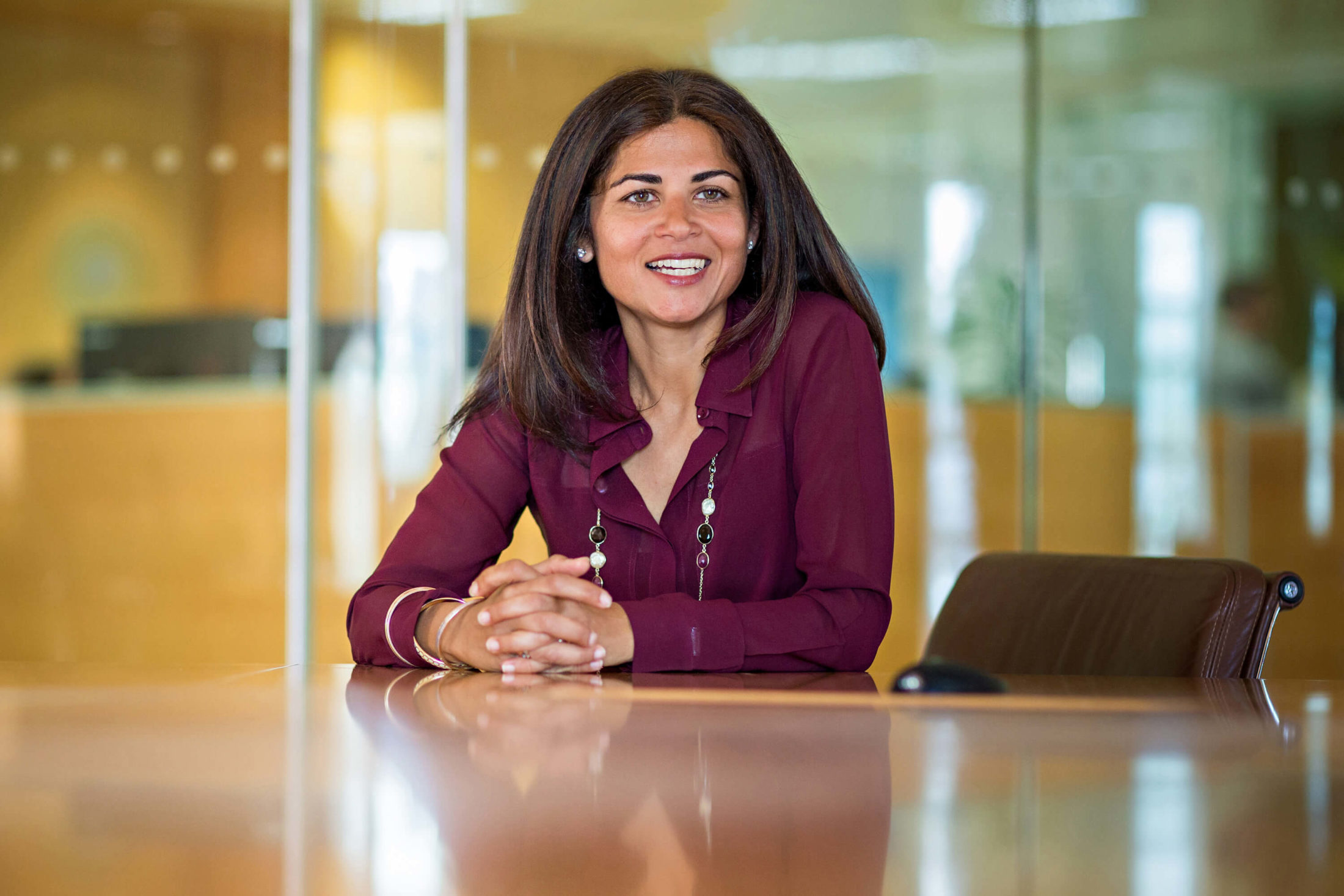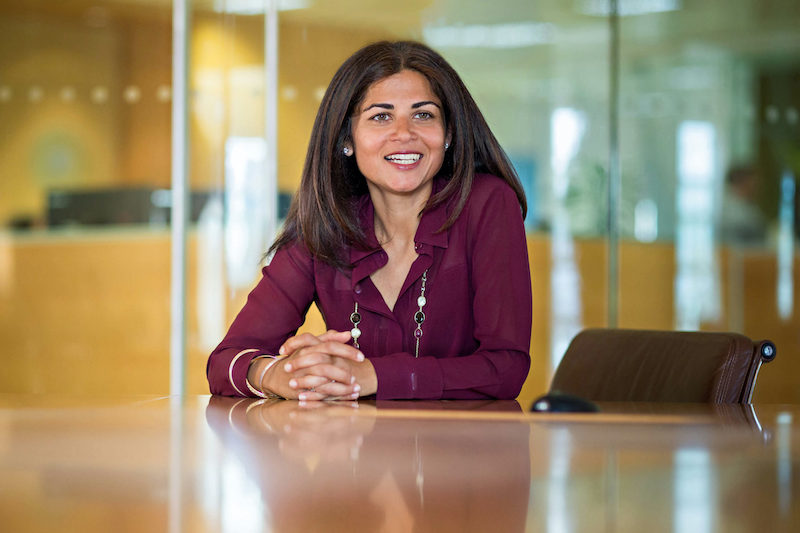Finding Founders on Three Continents: An Interview with Sonali de Rycker, Accel
An interview with Sonali de Rycker, Partner, Accel
Originally from Mumbai, Sonali’s stellar career includes investment banking with Goldman Sachs and a Harvard MBA before joining VC Atlas Ventures (Moo, Seatwave, Magicalia) and then Accel (Spotify, Monzo, Shift). She stands at #2 on Forbes’ ‘The Midas List Europe: Top Tech Investors 2019’. Prepaid card provider and Accel portfolio company, Soldo, asks Sonali her business advice as the world’s workforce enters lockdown.
Sonali, given that the world’s workforce is currently in lockdown, how are you supporting your portfolio at Accel?
At Accel, we have seen multiple market cycles, and I personally experienced the dotcom crash and the 2008 financial crisis. This current event is characterized by the sudden shutdown of the economy combined with a lack of visibility of the road ahead. We are in almost daily touch with our portfolio so that we can be supportive and absorb some of the pressure.
In terms of practical guidance, we are encouraging our portfolio to create crisis teams to oversee all affected areas, from product (including physical product if relevant) and customer service through to workplace operations, team safety and employee morale; and of course financial decision-making.
Everyone should plan for a bumpy road ahead through most of 2021. That said, we don’t believe in generic guidance. All our input is bespoke, as every industry is being impacted differently in terms of revenues and implications for cost and runway. It’s an especially difficult time for companies who had planned to seek funds in Q3/Q4 this year.
Companies should engage in detailed resilience planning for multiple scenarios – certainly base case and worst case. They must clearly understand the thresholds on the basis of which further cost-cutting would become necessary. At this point almost everybody has frozen hiring and halted all non-essential activity; but this likely won’t be enough.
However, as every industry is being impacted differently there is a flipside. We have some businesses in our portfolio which are enjoying tailwinds, such as online primary care (Kry/Livi) and collaboration (Miro, Hopin). We encourage them to lean into supporting the increased demand while being thoughtful and considerate to their customer base and end-users in what is unquestionably a humanitarian crisis.
You’ve been at Accel for over a decade – and Accel has been around for longer than most VCs. What is Accel’s investment strategy, given that heritage and experience?
We’re entering our 38th year at Accel while also celebrating our 20th year in Europe; so we’ve certainly seen a number of cycles. At Accel, we partner very early, with entrepreneurs who have the ambition to build a category defining business; and even better is if we think it is one that can leave a strong legacy.
We work closely with entrepreneurs who think globally, or who at least have the aspiration to learn globally; it’s an approach which brought us to Europe 20 years ago and then India 15 years ago.
In terms of categories, we aim to go deep into sectors but also to keep our heads up in order to recognise the next big thing. Having been in business for nearly four decades, Accel has invested in everything from semiconductors and networking, music streaming and gaming, to fintech and of course we have a strong track record in software.
The range is large because technology is now at the centre of every business – so in many ways every business is a technology business; and one needs to work with companies across a range of sectors, be that healthcare to financial services to logistics. And of course the pace of change is only accelerating. Everybody’s status quo is being up-ended. Hence, for us, it’s much more about the entrepreneur’s ambition and the scope of what’s possible rather than any particular sector.
We are trying to attract the best entrepreneurs regardless of background; after all, Silicon Valley doesn’t have a monopoly on ambition or innovation. They have had a head start, but not a monopoly.
Like many VCs, you’re lucky enough to be a global citizen. But all founders come from somewhere. And you’re looking for people who are prepared to learn how their company might grow really fast in a complex cultural environment. What does ‘learning globally’ mean?
In Europe right now, what’s really exciting is the mix of different founders’ backgrounds. We, therefore, try to think about the attributes of founders as opposed to their track record as many are first-time entrepreneurs.
In the absence of other signals, we ask ourselves questions around how thoughtful they are, how they think about talent, how they prioritize, their sense of urgency, ability to be a magnet for talent etc. It’s taken years for us to tune that filter, but it’s an excellent indicator in the absence of deeper evidence.
The thing that has struck me most about the best entrepreneurs is their quest for learning. The strongest founders always ask: who should I be talking to? They will follow up on those introductions, learn everything they can – and then seek introductions to the next five people who might be able to help. They are insatiable in terms of learning, meeting good people, and hiring the very best.
Take Celonis, a fast-growing software business which took our investment in 2016 when it was still very early and which was recently valued over €2.5B. Its three founders came straight out of school at the Technical University of Munich, with no prior entrepreneurial training whatsoever. They have done an incredible job and were also well placed geographically as they had German industrial giants SAP and Siemens in their backyard, and used every opportunity to learn and make valuable connections.
In all, we’ve invested in 45 cities from the London office, from Bucharest to Vilnius and Aarhus; to name just three recent examples. We have had to become global citizens to find these entrepreneurs wherever they are, which is also reflected in how we engage and build valuable relationships with them. We have evolved ourselves as a business, in order to eliminate bias and assess and partner with founders regardless of their background.
We are trying to attract the best entrepreneurs regardless of where they started; after all, Silicon Valley doesn’t have a monopoly on ambition or innovation. They have a head start, but not a monopoly.
And how does Accel then contribute?
The best way to describe how we help is that we are essentially an accelerant, a toolkit to help entrepreneurs to go faster.
We’re in the back of the car. We’re not driving, and if an entrepreneur wants to go over a pothole, we won’t stop them. It is their business. But we will point out the potholes, and make further introductions to help inform them, even put more people in the back of the car in terms of key execs and board members who can smooth the way forward.
It helps when you have seen the movie before and have built up a strong pattern recognition as well as a relevant network. For example, if an e-commerce business is trying to scale across Europe, the team at Flipkart, the Indian e-commerce giant, can be invaluable in sharing their lessons learned.
Similarly, we invested in a collaboration/virtual whiteboarding company called Miro; now based in San Francisco. We were very instrumental in introducing them to people from Atlassian, Slack etc all leading collaboration companies [Accel wrote unicorn Slack’s first cheque] and a sector in which we’ve spent plenty of time and have strong expertise.
Then, there’s hiring. For us, talent is everything. Europe has exploded in terms of available talent, but it’s still not easy to hire at scale, to hire if you need to relocate to the US or to get great talent to relocate to you. Having invested for four decades and with hundreds of people passing through our network – many of whom want to stay in the Accel family – we can easily find very experienced and well-referenced leaders to join companies in record time. And there’s no accelerant better than getting the right talent in place at the right time!
Let’s turn to fintech. The poster child here is your investment in Monzo. Monzo is a trailblazer, but also an outlier: Tom Blomfield is an extraordinary communicator, publicist and visionary. Is Monzo even repeatable today?
I do think it’s repeatable, but there were a set of perfect circumstances that helped to create Monzo; namely the support of [UK regulator] the FCA’s Sandbox programme and the real frustrations with the Big Four banks in the UK. There is still an incredibly negative NPS across financial services businesses.
Now, trust is everything in a bank. This is not ecommerce. It is our money; our savings and there is nothing more important. Thanks to the right regulatory oversight, the right consumer proposition and, most importantly company values based on trust and accessibility, Tom created a bank with both trust and the values that seem to have been missing from the market.
Tom has some of the best product sensibilities and voice-of-the-customer obsession that we’ve ever seen in any business. To an absolute extreme, Monzo always asks: are we doing the right thing for the consumer – for their livelihoods as well as basic financial management? That mindset and culture had an almost explosive quality at Monzo’s inception, which is why they have achieved remarkable customer engagement and consistent awards for best bank and best customer service.
This doesn’t mean that Monzo won’t have to continue to work hard to further commercialize the business, and that’s a tricky balance to strike. We are still in the early innings in this sector. But it does show us clearly what drives success in fintech.
So yes, Monzo is repeatable, both in consumer banking and in other fintech sectors. The lesson is that ambitious entrepreneurs who really align with the customer base, think customer-first and stay close to the product have the recipe for success.
Soldo is very much the same: what Soldo is doing for small to medium-sized businesses is not just expense management – it’s about improving the CFO experience, every single day, with automation, visibility and cost reduction. It’s ideal timing, too – we’re in the early stages of PSD2 [the B2B equivalent of European Open Banking legislation], which will create an aggregated view of businesses and really galvanise what fintechs can achieve for business customers.
You talk about trust as a genuinely valuable commodity. It seems to me that lots of businesses can develop product – there are innumerable neo-banks out there with barely differentiated UX and product. Whereas being able to own consumer trust, in a way that both Soldo and Monzo have achieved, is a much stronger proposition – and harder to replicate…
Our view is that you can always acquire consumers if you give them incentives. Anyone can use the economic hook of discounts or introductory rates. But Monzo is adding hundreds of thousands of customers a month with absolutely no financial hook, which is one of the reasons we invested. Consumers talk about Monzo because they love the company, the product and the service. And that tells us that it’s sustainable.
The other key factor is engagement, which comes back to the idea of trust. Anyone can sign up to a whole bunch of bank accounts; and many early adopters have done so. But only if you are either my primary or close-to-primary bank account will you see enough of my aggregated data to develop ideas and products that truly represent the future of banking. For a new bank to attract that degree of engagement demands trust from the consumer; which is what Monzo has achieved.
In many ways, it’s still early for the entire sector. As with many of these seismic shifts in major industries, it takes many years for a true understanding of the blueprint for success to play out. I think there will be several successful fintech companies, but in single geographies the question for us today is: are you really an alternative to a traditional bank. That’s what Monzo is achieving; and, given their numbers, they have a real shot at being a top-five, mass-market bank.
Anyone can sign up to a whole bunch of bank accounts; and many early adopters have done so. But only if you are either my primary or close-to-primary bank account will you see enough of my aggregated data to develop ideas and products that truly represent the future of banking.
Is there a scaling lesson that transfers from, say, a Spotify to a Monzo? Accel helped Spotify to conquer the US, particularly by nurturing a Facebook relationship. But travelling a fintech is hard…
Monzo is already live with a small set of customers on the West Coast. We understand fintech in the US, having been early investors in a series of very successful US fintech companies, including Braintree [sold to PayPal]. So we have a deep bench of fintech relationships that help us to understand, manage, and evaluate what’s possible on the ground. The other aspect is, again, talent. In the end, we were not the people who introduced Monzo to their new Head of the US – a formidable executive from Visa who ran their Global Products – but you don’t get access to those kinds of individuals without the right investors.
What’s next for fintech?
We’re giving a lot of attention to helping small and medium-sized businesses become more efficient in terms of how they manage their spend, how they think about their payments and how they think about credit. There just isn’t the equivalent of B2B SME credit data out there, the way we have with Experian and Equifax.
There’s plenty to do around managing the entire back end, operational and financial side of small to medium-sized businesses; and we’ve barely scratched the surface of that opportunity.
The other big area is insurance. We’re investors in a company called Shift that is using deep learning to recognize claim fraud – which will be particularly relevant in the current Coronavirus crisis. In doing so, they are also helping insurers think about automation across the entire claims process; because at the moment, it’s incredibly cumbersome, frustrating, manual, and leads to customer dissatisfaction and churn.
Insurance and B2B are probably the two really fertile areas attracting our attention ongoing.
This interview is part of a series by Soldo, the prepaid company card solution that makes your expense accounting simple. You can read more interviews from Soldo’s interview series here.








